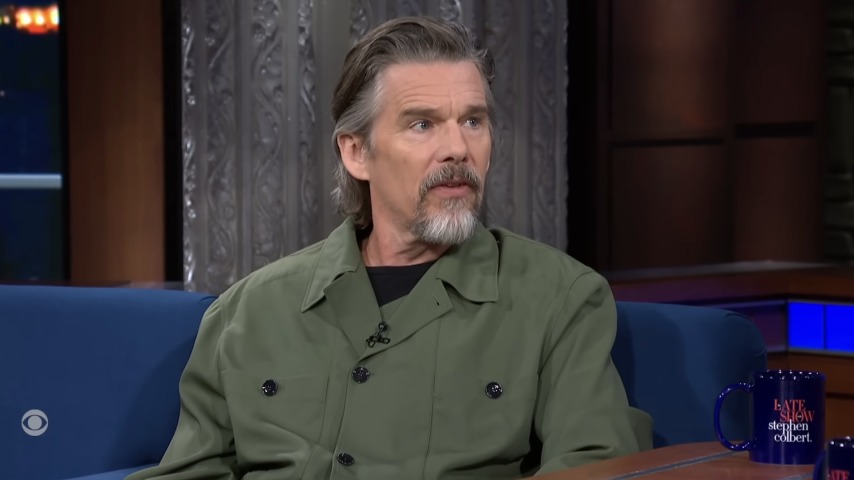Ethan Hawke goes to bat for "offensive art"
At the Berlinale, Hawke urged audiences to care about works that are "punk in their sensibility."
Screenshot: The Late Show/YouTube
At a press conference for Richard Linklater’s Blue Moon at the Berlinale, the filmmaker and his stars were asked if art must carry more offensive themes to contend with the “offensive times” we live in (via Deadline). Ethan Hawke took the opportunity to champion so-called “offensive art”—in this case, his examples include “great punk music or some early Brecht plays that are punk in their sensibility.” That kind of offensive art doesn’t sell these days, Hakwe argued. “You guys, the community, has to make it important. For offensive art to have a place in our conversation, it has to be cared about.”























![Rob Reiner's son booked for murder amid homicide investigation [Updated]](https://img.pastemagazine.com/wp-content/avuploads/2025/12/15131025/MixCollage-15-Dec-2025-01-10-PM-9121.jpg)
















